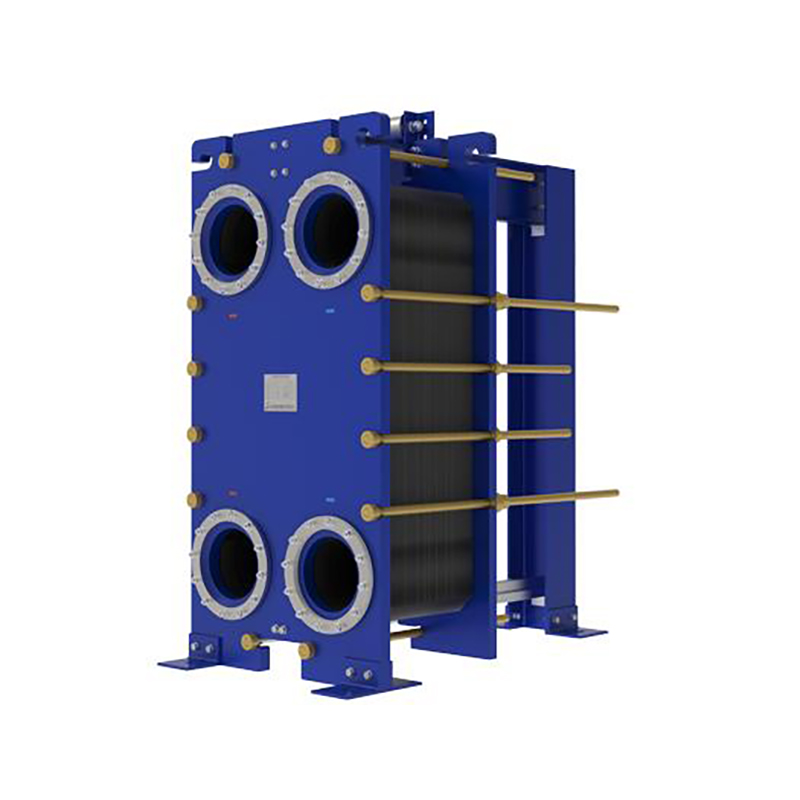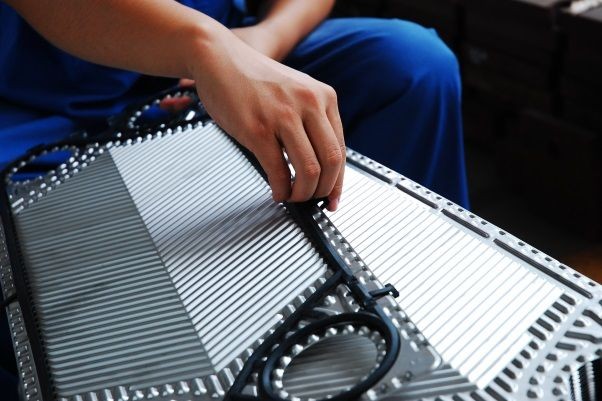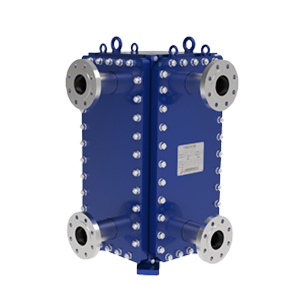5 key roles of plate heat exchanger gaskets.
Plate heat exchanger gaskets perform 5 key roles: ...
More
A seawater heat exchanger is a critical component in marine, offshore, and coastal industrial applications, designed to transfer heat between seawater and another fluid without allowing them to mix. Typically constructed from corrosion-resistant materials like titanium, cupronickel, or advanced stainless steels, these exchangers handle the harsh, corrosive nature of seawater. They operate on the principle of indirect heat transfer, where seawater flows through one set of tubes or channels while a process fluid (such as engine coolant, lubricating oil, or HVAC refrigerant) flows through another. This setup prevents seawater from contaminating sensitive systems while efficiently dissipating excess heat. Common types include shell-and-tube, plate, and plate-and-frame heat exchangers, each selected based on factors like flow rate, temperature differentials, fouling potential, and space constraints. They are essential in ships for cooling main and auxiliary engines, in offshore oil rigs for process cooling, and in power plants for condenser cooling, ensuring operational reliability and safety in demanding environments. Their design prioritizes thermal efficiency, mechanical robustness, and ease of maintenance to withstand prolonged exposure to abrasive and biofouling conditions inherent in seawater use.
The primary advantages of seawater heat exchangers stem from their durability, efficiency, and cost-effectiveness in challenging environments. Their use of corrosion-resistant materials like titanium (which offers exceptional resistance to saltwater corrosion and erosion, with lifespan extensions of 20+ years in many applications) drastically reduces maintenance needs and downtime. This material selection is crucial, as titanium heat exchangers can handle chlorinated seawater without degradation, a common issue in coastal power plants. The high thermal conductivity of materials such as cupronickel (90 W/m·K) ensures efficient heat transfer, leading to compact designs that save space and weight—critical factors on vessels and platforms. For instance, plate heat exchangers can achieve heat transfer coefficients up to 7000 W/m²K, allowing for smaller units compared to freshwater models. They eliminate the need for complex freshwater cooling systems, reducing infrastructure costs and energy consumption for pumping and treatment. By using seawater—a free and abundant coolant—operational costs are significantly lowered; industries report up to 30% savings in cooling-related expenses. Additionally, their robust construction minimizes leakage risks, protecting expensive equipment from saltwater damage. Advanced designs incorporate anti-fouling features like brush cleaning systems or chlorination compatibility, maintaining efficiency and reducing biofouling-related performance drops, which can decrease heat transfer efficiency by over 20% if unaddressed. This reliability ensures continuous operation in critical applications, from naval ships to desalination plants, enhancing overall system longevity and performance.
Select the most popular foreign trade service products to meet your diverse needs
Learn more about the dynamics and professional knowledge of the foreign trade industry

Plate heat exchanger gaskets perform 5 key roles: ...
More
A gasket in heat exchanger seals surfaces, blocks ...
More
API 662 defines standards for plate heat exchanger...
More
Compare top frame plate heat exchanger models for ...
More
User reviews show the american standard heat excha...
More
You can see clear differences between welded block...
MoreSelect the most popular foreign trade service products to meet your diverse needs
Explore more content related to foreign trade services

User Comments
Service Experience Sharing from Real Customers
Michael Chen
Marine EngineerThis titanium seawater heat exchanger is exceptionally corrosion-resistant and has performed flawlessly on our offshore platform for over a year. The thermal efficiency is outstanding.
Sarah Johnson
Chief EngineerA robust and reliable piece of equipment. Installation was straightforward, and it handles the high salinity and biological fouling in our region much better than our previous unit. Highly recommended for marine applications.
David Rodriguez
HVAC TechnicianWe installed this for seawater-based cooling in a large coastal data center. The build quality is superior, and it has significantly reduced our cooling costs and maintenance downtime compared to the old system.
Emily Wang
Aquaculture ManagerPerfect for our temperature control needs in the salmon hatchery. The non-reactive materials are safe for the sensitive stock, and it maintains a very consistent water temperature. A critical and dependable component of our operation.